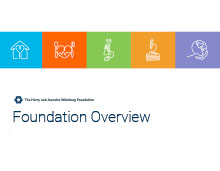The Weinberg Foundation launched an initiative in 2021 with three community development financial institutions (CDFIs) to help nonprofits quickly access the working capital needed to meet the needs of their communities during the COVID-19 pandemic. In the first year of this initiative, these partners—Hawai’i Community Reinvestment Corporation, IFF, and Nonprofit Finance Fund—served 29 nonprofits (90% led by people of color) and leveraged the Foundation’s grants to provide an additional $27 million in capital to support projects in communities historically excluded from financing. This does not include funds that will continue to serve more nonprofits in the future.
Loans went to smaller nonprofits (average budget size of $2.2 million) and were an average size of $200,000—almost unheard of in the traditional financial market, which primarily serves large organizations and avoids providing small working capital loans that are critical for many nonprofits.
Beyond providing critical capital to these organizations, the initiative yielded a range of lessons for the Foundation and fellow funders, which we and our CDFI partners recently had the privilege of sharing at the industry’s largest conference in the country.
Leveraging flexible operating grants from the Foundation, the CDFIs were able to:
- Improve loan terms and policies to advance racial equity and inclusion. CDFIs offered loans at significantly reduced interest rates (from 0% to one-third of standard rates). They also modified underwriting protocol/s, such as waiving minimum revenue or collateral requirements, that typically serve as barriers to accessing critical resources.
- Transform outreach to underserved communities. With a focus on racial equity, CDFIs made fundamental changes to their outreach efforts because many nonprofits of color are not aware of the financial resources available. These new outreach strategies are beginning to change the CDFIs’ marketing strategies and create a new pool of borrowers that have traditionally been marginalized even within CDFI services that are designed to cater to borrowers with barriers to traditional markets.
- Expand technical assistance. Responding to the financial capacity building needs of nonprofits, the CDFIs provided more extensive support beyond their typical offerings, covering topics such as basic budgeting and forecasting or navigating legal expertise for capital projects.
In addition, as a new area of grantmaking for the Foundation, we gleaned the following insights:
- Developing affordable, flexible loan products for nonprofit borrowers is critical. Combining affordable and flexible capital with grants is a critical strategy for any nonprofit seeking to build long-term sustainability. CDFIs are especially equipped to help nonprofits that are historically excluded from the financial mainstream build their assets.
- Nonprofits benefit from significant financial technical assistance. CDFI partners reported that pre-loan advising was a strategy beyond a response to the COVID-19 crisis. This type of support is critical to moving communities of color from historically lacking resources to meeting what have been long-standing needs around lasting organizational sustainability. Organizations with fewer resources need a significant amount of support, including in the areas of finance, human resources, communications, technology, fundraising, and board development.
- A learning cohort of grantees provides invaluable insights for funders. As part of this grantmaking, CDFI partners came together to share insights on best practices and solve challenges together. This active participation provided more meaningful insights than any written report could possibly teach about internal and external challenges as well as the resources needed to address complex systems with deep historical barriers to equity and inclusion.
We look forward to continuing to learn about how philanthropy can leverage resources of CDFIs to strengthen the nonprofit sector and build assets within low-income communities.
